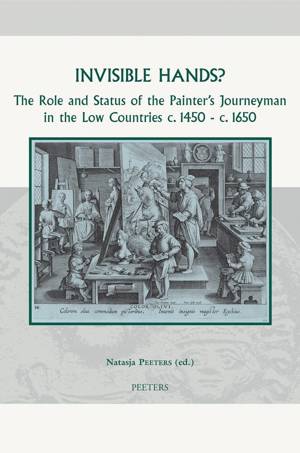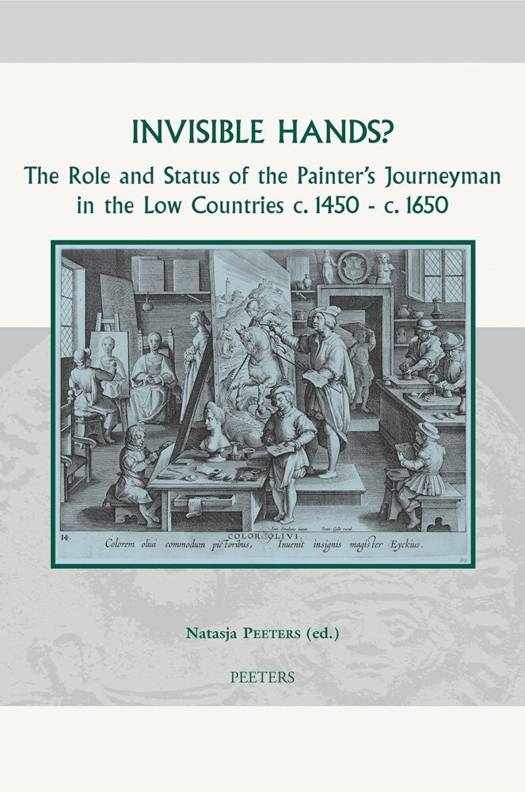
- Retrait gratuit dans votre magasin Club
- 7.000.000 titres dans notre catalogue
- Payer en toute sécurité
- Toujours un magasin près de chez vous
- Retrait gratuit dans votre magasin Club
- 7.000.0000 titres dans notre catalogue
- Payer en toute sécurité
- Toujours un magasin près de chez vous
Invisible Hands?
The Role and Status of the Painter's Journeyman in the Low Countries C.1450 - C.1650
Peeters N
45,00 €
+ 90 points
Description
The topic of the workshop entitled 'Role and status of journeyman in artists' and craftmen's workshops in the Low Countries c. 1450 - c. 1650', held in Groningen, 23-24 May 2003, grew out of archival and material-technical research on workshop practices. As a result of this research it gradually became clear that more knowledge about the social and economic mechanisms of art production was required in order to study the painters' workshop. Such research frequently moves in two or more directions, and in this case the workshop proceeded on the basis of two questions: how can socially and economically oriented historical research help art historians, and what can art historical, and material and technical research add to corporate history of the painter's guild? Geographically, the case studies in this volume deal with southern Netherlandish towns, in particular Antwerp, Brussels, Mechelen, Ghent and Bruges. One essay focuses on the Dutch Republic. Chronologically, the contributions treat the late Middle Ages and early Modern Period (c. 1450 and c. 1650). From an artistic point of view, this era can be characterized as the long 'Golden Age' of Flemish painting. The epoch witnessed the apogee of the art of the Flemish Primitives and the rise of the successful genre of Antwerp Mannerism. It also witnessed the start of the influence of the Italian Renaissance on Flemish art, the rise of Antwerp over the course of the sixteenth century as the vanguard of new genres which were exported all over the world, and the international triumph of the Flemish Baroque after 1610.
Spécifications
Parties prenantes
- Auteur(s) :
- Editeur:
Contenu
- Nombre de pages :
- 173
- Langue:
- Anglais
- Collection :
- Tome:
- n° 23
Caractéristiques
- EAN:
- 9789042919372
- Date de parution :
- 31-12-07
- Format:
- Livre relié
- Format numérique:
- Genaaid
- Dimensions :
- 165 mm x 244 mm
- Poids :
- 544 g

Les avis
Nous publions uniquement les avis qui respectent les conditions requises. Consultez nos conditions pour les avis.






